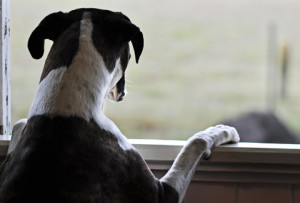
Pet loss is painful
The grief felt losing a pet is a surprise to many people. A beloved pet is a companion on so many levels to a human that when the companion is gone the loss is profound. Other pet lovers understand your grief but many of us are embarrassed to share the intensity of the grief with others. We hide our grief for the loss of a pet for fear of the comments:
“It was just a dog.”
“Just get another one.”
“There are plenty of other cats who need homes at the shelter.”
The comments are well meaning in a poor attempt to solve the griever’s pain but usually result in hurt or annoyance.
Through the years I have experienced the loss of pets and it always surprises me how much it stings and grieves. The only people I talk to about my feelings are other pet people who know the pain.
People who study grief list pet loss under the category of disenfranchised grief, which I discussed in an earlier post (Alone in Grief). This is the type of grief not acknowledged by others as valid. Other examples can include the death of a gay or lesbian partner from a conservative family, the death of a mistress, suicide, or AIDS complications. It is a death one does not feel safe to discuss.
Tips to grieve a pet:
- Discuss your pain with others who understand pet loss.
- Do something to memorialize your pet that will be meaningful to you. It can be as simple as keeping a favorite toy.
- Do not feel pressured to take others’ advice about how “to get over” the pet.
- If you want to rush out and get another pet immediately – do so. If you want time to grieve your pet and take a break between animals, do so.
- Understand the guilt and questioning one may have about euthanizing a pet is normal. (Statistically more people regret not putting their pet out of misery earlier.)
- Allow your self to feel and express the pain rather than contain the pain. The release of pain eventually decreases the charge of the ache.
- If the pet is missing, you do not have confirmation of death, your pain has an additional layer of emotion due to the ambiguity. Guilt may compound your grief. Talk about it to decrease associated shame. Learn from the experience to prevent this kind of a loss again with a new pet.
There is not one right way to grieve the loss of a pet. The expression and process of grief is individual. Expect the pain to last for days, weeks, months or even years. I still experience moments of missing my collie, Katy, who died over 30 years ago. But if it has been weeks and you find it difficult to manage daily functions or if the depression is so great you consider suicide a viable option to end your pain, you are likely suffering from complicated grief and may greatly benefit working with a grief counselor.
